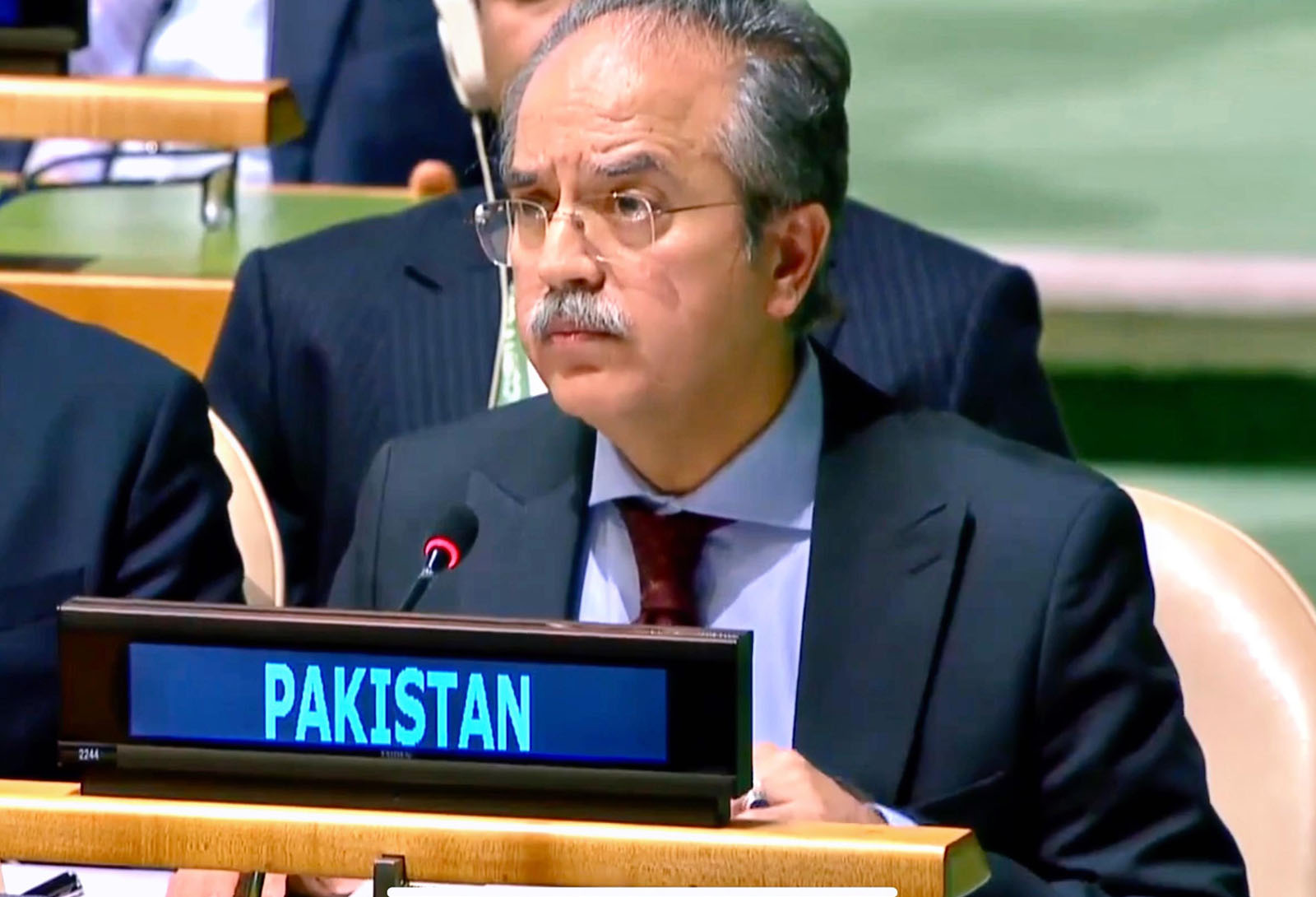Pakistan and Israel engaged in a fiery exchange at the United Nations Security Council (UNSC) following Israel’s recent strike in Qatar. At an emergency session convened on the ‘Situation in the Middle East,’ Pakistan’s Ambassador, Asim Iftikhar Ahmad, launched a stern condemnation of the attack. He labeled it an “illegal, unprovoked, and brazen assault” that violated Qatar’s sovereignty and international law. Ambassador Ahmad warned that the strike was part of a consistent pattern of Israeli aggression that seriously threatens regional peace and stability.
In his address, the Pakistani envoy detailed the ramifications of the attack, highlighting that it deliberately targeted a residential area, endangering civilians and breaching International Humanitarian Law. He described the strike as a direct challenge to ongoing diplomacy, coming at a time when Qatari-mediated negotiations for a Gaza ceasefire were reportedly nearing a potential breakthrough. “Striking the territory of a principal mediator is a deliberate attempt to sabotage diplomacy and prolong the suffering of civilians,” Ahmad stated, reaffirming Pakistan’s full solidarity with Qatar.
The debate intensified when Israel’s ambassador attempted to justify the strike by drawing a parallel to the 2011 US operation that killed Osama bin Laden in Pakistan. He questioned why a terrorist was given shelter and stated there could be “no immunity for Hamas.” Pakistan immediately exercised its right of reply, with Ambassador Ahmad rejecting the analogy as “unacceptable and ludicrous.” He accused Israel of deflecting from its own illegal actions and violations of international law, asserting that it “stands fully exposed” as an occupier that acts with impunity.
Following Pakistan’s rebuttal, the Israeli ambassador returned to the podium, apologizing if his words caused offense but standing by his “facts.” He accused Pakistan and other nations of applying a double standard, noting that the U.S. operation was not condemned. The clash underscored the deep diplomatic divisions within the UNSC, even as the council members had earlier unanimously expressed deep regret for the loss of civilian life in Doha and reaffirmed their support for Qatar’s sovereignty and its vital role in mediation efforts.














